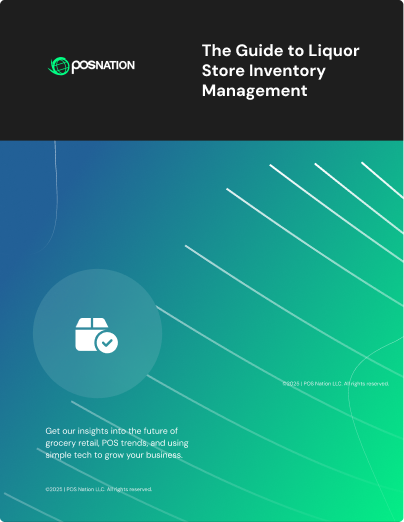Opening a liquor store without a rock-solid budget is like trying to make a margarita without tequila — it simply won’t work.
One in five business owners close their doors within the first year of operation, often because of financial trouble stemming from underestimated startup and operating expenses. These expenses can be even higher for liquor stores due to complex regulations and high inventory costs.
So, how much does it really cost to open a liquor store? We’re here to help you make a smarter financial plan.
Keep reading to see real industry estimates, specific cost breakdowns, and some of our top tips for liquor store profitability.
How Much Does It Cost To Open a Liquor Store? The Real Industry Average
Let’s cut to the chase: Opening a liquor store costs anywhere between $75,000 and $250,000 or more.
Where you fall in this range depends on several factors, including:
- Location: Stores in highly populated, urban areas often have higher rent and licensing costs, but they also have bigger earning potential.
- Size: A small wine shop will have lower real estate costs, while a warehouse-style liquor outlet will have higher rent and buildout expenses.
- Niche: Specialty liquor and wine shops will typically carry less inventory, but premium wines and spirits are more expensive to stock. You’ll also have to spend more on marketing to attract the right customers.
Regardless of your liquor store’s location, size, and product selection, the line items in your budget will likely look the same. Let’s dive into how much it costs to open a liquor store — plus expert tips to set your business up for success.
Related Read: Buying a Business vs. Starting One: A Liquor Store Guide
1. Location Costs
Where will your liquor store be located? Will you lease or purchase a property? Is your space ready for business? The answers are critical for your new liquor store’s budget.
For example, busy areas will have higher foot traffic and revenue potential, but you’ll likely pay more in rent. Purchasing a property costs more upfront, but you’re protected from rent increases. A bare-bones space will cost less, but you’ll have to invest more in renovations like shelving and counters.
Location cost estimates:
- Monthly rent: $5,500 (based on a 2,000 square foot store and the national average of $33/square foot for commercial leases)
- Security deposit: $5,500 to $16,500 (generally one to three months' rent, depending on your individual finances)
- Equipment: $3,000 to $20,000 (ranging from basic gondola shelving to glass-door refrigerators for cold beer and wine)
How to choose the right location:
- Perform market research: Make sure your liquor store is located near your ideal customer — whether that’s higher-income connoisseurs who want luxury spirits or budget-savvy shoppers who want a great deal.
- Scope out the competition: Put enough distance between your liquor store and nearby competitors, and try to offer something they don’t, like personalized customer service or an expertly-picked product selection.
- Prioritize easy access: Spaces on busy street corners and main roads often get more foot traffic than remote locations. Don’t forget to check the availability of parking or public transportation.
Related Read: 7 Liquor Display Ideas To Maximize Liquor Store Sales
2. Liquor License Fees
Understanding your state’s liquor licensing process is the very first step to take on your liquor store journey.
Licensing requirements, timelines, and costs can vary significantly from state to state, which is why it’s so important to start your research and application as early as possible.
Liquor license fee estimates:
- Application fee: Ranges from free to over $1,000, with most states charging around $100
- Liquor license fee: Varies significantly. Some states, like South Dakota, base fees on local population ($1 per resident), while others charge a flat fee, ranging from a few hundred dollars to tens of thousands.
- Quota costs: Some states have liquor license quotas, limiting the number of stores in a certain county. This means you’ll have to purchase your license from a private seller in an auction, costing hundreds of thousands of dollars.
Tips for getting your liquor license:
- Start early: Getting your liquor license can take months. To avoid snags and delays, start the application process as soon as you’ve gathered all the essential paperwork.
- Understand your state’s liquor laws: Once you’ve received your liquor license, your top priority should be protecting it. Invest in the right technology to prevent underage sales and store required tax, inventory, and sales reports.
- Make a renewal plan: Letting your liquor license expire has serious consequences, from expensive renewal fees to the closure of your store. Thoroughly research your state’s renewal process and keep a close eye on the timeline.
3. Other Licenses and Permits
Your liquor license is often the most challenging permit to secure, but it’s not the only one. There are a few more legal steps you need to take before you can open your doors.
This includes creating a legal tax entity for your store, applying for a state or local retail license, and getting a zoning permit. You also need to insure your business against legal issues, the actions of intoxicated customers, major theft, and employee injury claims.
License and permit fee estimates:
- Creating an LLC: A limited liability company (LLC) is the most popular structure for liquor stores. State filing fees range from $35 to $500, with an average of $135.
- Securing a general business license: Some states require all businesses to secure a general or retail-specific license. These fees are generally lower than liquor license costs, ranging from around $10 to hundreds of dollars.
- Zoning permits: Zoning permits can range from a few hundred dollars to thousands. Zoning can be expensive for liquor stores, since many state and local governments limit where age-restricted businesses can operate.
- Insurance: Expect to pay around $300/month for general liability insurance, dram shop insurance, and workers’ compensation insurance.
Tips for securing the right paperwork:
- Work with the local government: Your county clerk and state ABC board should be able to guide you in the right direction.
- Talk with other business owners: Connect with other retailers in your area to ask for advice and recommendations.
- Create a checklist: Staying organized and checking off each licensing step can help you be ready for your liquor store’s grand opening.
4. Initial Inventory
Purchasing initial inventory is the most expensive (and perhaps most important) part of opening a liquor store.
During your grand opening, you want to win over new customers with your excellent product selection and have more than enough bottles on hand to meet demand.
Inventory cost estimates:
Smaller wine or boutique liquor stores might spend $50,000 on inventory on the low end, while full-scale liquor stores might spend upwards of $100,000.
Tips for stocking your liquor store:
- Make data-driven pricing decisions: Stocking your shelves is expensive, and setting the right prices is crucial for profitability. Carefully track your inventory costs and adjust profit margins for each individual bottle.
- Make an inventory management plan: Ordering mistakes and stockouts can eat into your liquor store’s bottom line, so invest in software with built-in inventory management features.
- Stay on top of trends: Your sales reports should help you learn about customers’ product preferences and shopping habits, helping you tailor your selection to their unique wants and needs.
5. Hiring Employees
You can’t always be physically present to watch over your store and serve customers, so you need to hire one or two employees to keep things running smoothly when you’re unavailable.
Hiring employees is a significant line item in your liquor store business plan and budget, so let’s look at some estimates and tips.
Labor cost estimates:
- Wages: $2,000/month (based on one part-time employee working 20 hours per week and paid $25/hour)
- Background check: Around $50 to $100 per report
- Job board fees: $150/month to advertise on Indeed
Liquor store hiring tips:
- Conduct thorough interviews: Your employees should be knowledgeable about good customer service and spirits.
- Run a background check: Your employees will be responsible for running the store while you’re away, so make sure you can trust them.
- Invest in training: Your staff is only as good as their training, so plan regular training sessions to discuss your product selection, policies, and best practices for serving customers.
6. Point of Sale System
A point of sale (POS) system is the engine that runs your liquor store. It facilitates the checkout process, monitors inventory levels, analyzes your sales data, and even prevents underage sales.
This technology is essential for a well-managed liquor store, so invest the time and money into finding the right one.
POS software and hardware costs:
- Hardware setup: Expect to pay around $1,000 for a standard hardware bundle that includes an all-in-one computer, barcode/ID scanner, receipt printer, and cash drawer.
- Software subscription: Most POS providers operate on a tiered subscription model, allowing you to pay a lower fee for limited functionality and upgrade as your store grows. Most plans range from $50 to $150/month.
- Payment processing: You should also expect to pay a small fee per transaction, but you can save money on payment processing by offering a dual pricing option.
- Delivery app integration: If you want to sell online, you’ll need to set up a delivery app storefront or online store. Software costs can vary.
Tips for choosing a liquor store POS system:
Our number-one tip is to look for a POS system specifically designed for liquor stores. This ensures you have access to the features and support you need to launch, manage, and grow your business. Here’s what to look for:
- Built-in, scanner-powered age verification
- A customer loyalty program and promotion options
- Case-break inventory management
- Automated purchase orders
- AI-powered sales reporting and analytics
- Delivery app integration
Related Read: Liquor Store POS Systems: 5 Top Providers [Features + Pricing]
Start Your Liquor Store the Right Way
Congratulations! Now that you know how much it costs to open a liquor store and you’ve made an airtight budget, you’re ready to take the next step.
The best part? You don’t have to do it alone.
Get started with Bottle POS, our all-in-one POS solution designed specifically for liquor stores. Along with the features you need to stay compliant, nurture customer loyalty, and manage inventory, you’ll have access to our team of liquor industry experts through onboarding and beyond.
Take Bottle POS for a spin by scheduling your live, personalized demo today!







![4 Best POS Systems for Beer Stores in 2026 [Features, Pricing, & Reviews]](https://www.posnation.com/hs-fs/hubfs/Blog%20Featured%20Images/POS-system-for-beer-store.webp?width=520&height=294&name=POS-system-for-beer-store.webp)

 by Cort Ouzts
by Cort Ouzts

 by Spence Hoffman
by Spence Hoffman